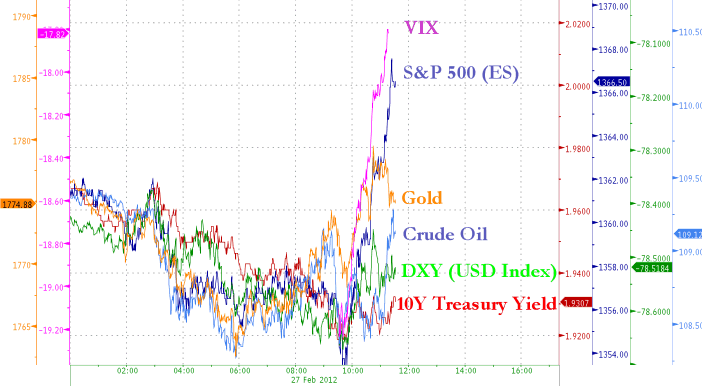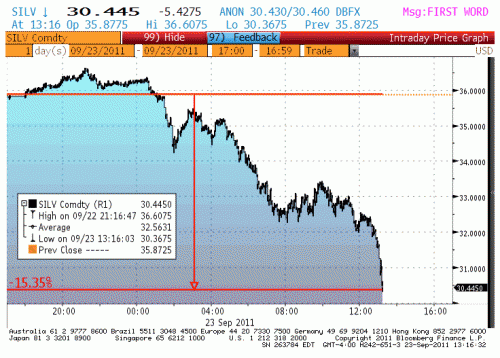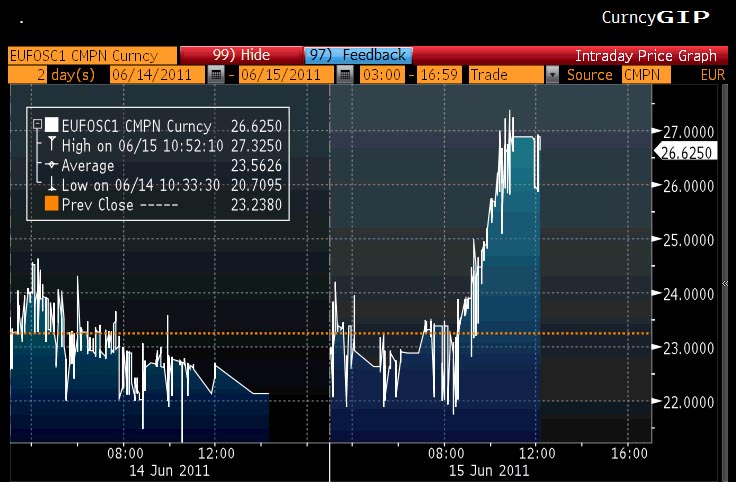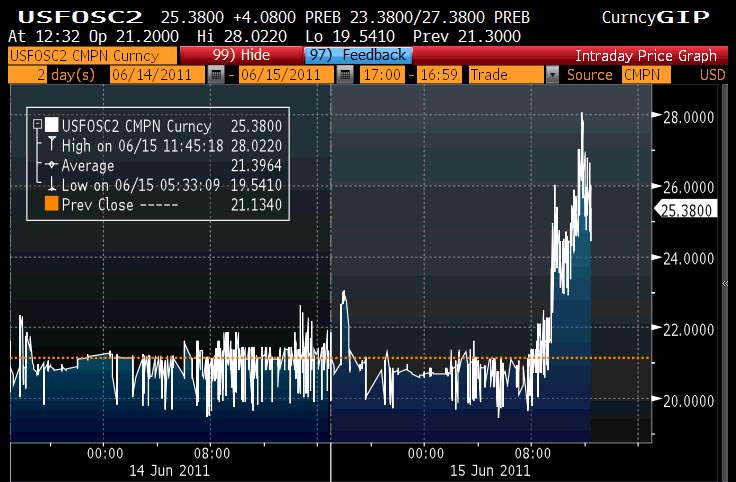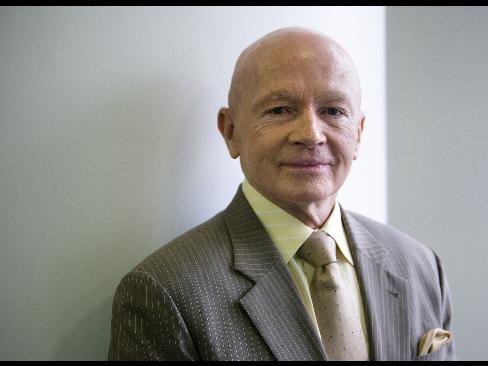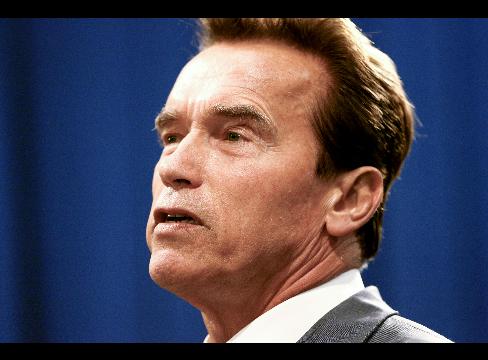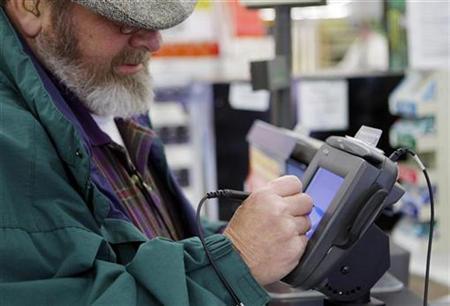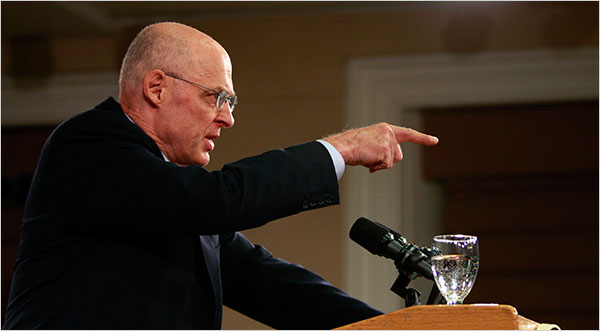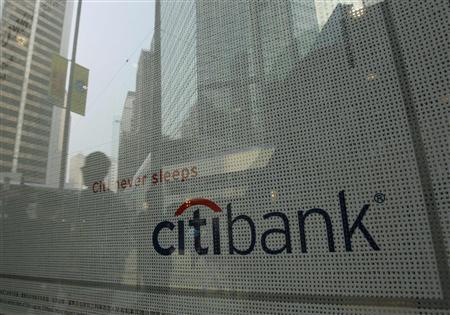Warren Buffett bought 130 million ounces of silver between 1997 and 1998.
If the elitists agree that the time for the US dollar is up (and that time will come soon), he and his elite friends will sell their dollars, buying up all silver and gold, running up the manipulated gold and silver markets.
Silver and gold will skyrocket, the dollar will crash and then he will buy up everything in America for a few cents on the dollar, especially land.
Mission accomplished!

Warren Buffet, Arnold Schwarzenegger, Jacob Rothschild
NEW YORK (TheStreet) – Improving market conditions have been a major benefit for Warren Buffett, who has famously remained bullish throughout this long, arduous global economic recovery.
Now, as we head further into the year, the Omaha native is sitting on a mountain of cash, leading many analysts, commentators, and fans to speculate what the world’s third richest man plans to do with it. According to a Sept. 30, 2010 filing, Berkshire Hathaway(BRK.A) has $34.46 billion in cash.
While it is possible, the chance that Buffett would be satisfied simply standing by and watching his money pile continue grow in size is slim. In the past, he has clearly expressed his negative feelings towards the idea of holding cash as a long term investment.
In an interview on the Charlie Rose Show, Buffett insisted that although Berkshire Hathaway always has enough cash around, he sees cash as always being a bad long-term investment. He went on to say that he is typically unhappy when he finds that there is excess cash available.
Likening cash to oxygen, the legendary investor said it is important to know that it is around but unnecessary to have it in excess. Rather than have hoards of excessive cash on hand, he would rather own a strong business.
A more likely scenario is that Buffett’s massive cash reserves will be used to fund another big ticket purchase. Although the investor has tweaked the positions within his legendary investment portfolio on a number of occasions, he has not made a major purchase since Berkshire Hathaway announced that it was acquiring the remaining shares of Burlington Northern Santa Fe Railroad at the close of 2009.
Finding a suitable purchase is not easy endeavor for the investor, however. The Burlington Northern purchase highlights the challenges Buffett faces when seeking out opportunities.
Whereas Buffett could once generate strong returns by picking up small, undervalued companies, the pool of attractive investment opportunities has shrunk significantly as his firm has grown. Today, in order for a company to significantly impact Berkshire’s performance, it must be large. The small, fast-moving companies that pocketed the investor staggering returns in the past would barely make a dent in Berkshire.
There is a strong chance that Buffett would like to use his massive pile of cash to fund a new purchase. However, finding an attractive destination to sink his funds will be a difficult task going forward.
The financial newswires are buzzing this week in response to a recent Buffett-related article in Barron’s which forecasted that a dividend may be in the future for Berkshire Hathaway shareholders. Citing the company’s massive surplus of funds and the challenge of finding attractive acquisition targets, the author notes that a dividend could be one logical way the company could utilize its cash on hand.
Although Berkshire Hathaway has not traditionally paid out a dividend, Buffett is no stranger to distributions. On the contrary, the investor’s investment portfolio is loaded with notable income-paying positions such as Proctor & Gamble, Johnson & Johnson and Coca-Cola. Additionally, the investors’ personal investment portfolio boasts exposure to a number of yield-bearing firms which have provided him with a comfortable payout in recent years.
While attractive, many have been quick to point out issues such as the tax challenges Berkshire Hathaway and Buffett would face if they chose to offer a dividend.
These are only a few of Buffett’s available options and ultimately, it remains unclear how he will eventually choose to spend Berkshire Hathaway’s cash. However, given the massive size of his available funds, whichever route he chooses to take down the road will be exciting to watch.
Don Dion, The Street | Jan. 28, 2011, 11:39 AM
Source: The Business Insider
